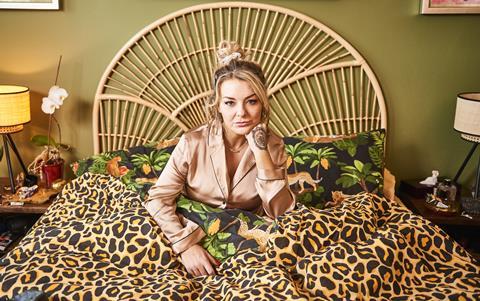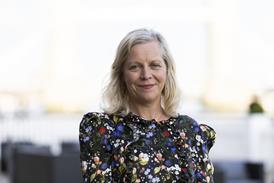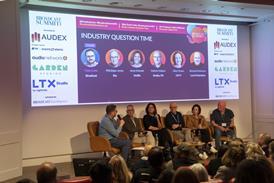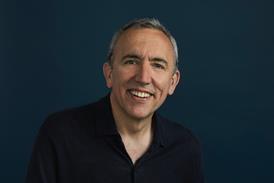“Rosie Molloy is a mess, but a damn funny one”

Rosie Molloy Gives Up Everything, Sky Comedy
“Rosie Molloy Gives Up Everything may turn out to be an endorsement of dry January’s cheerlessly fascistic lifestyle, broadcast by ironic schedulers in the middle of gorging season, making it quite possibly the most off-message show you will watch this winterval. The moral interest of the succeeding episodes no doubt will be: if Rosie gives up everything, will her life be worth living? My money says it won’t. Can’t wait to find out.”
Stuart Jeffries, The Guardian
“The very idea of Ardal O’Hanlon and Pauline McLynn, the priestly dimwit and the neurotic housekeeper from Father Ted, as a couple is deeply disturbing. It’s almost incestuous, and certainly against all of Ireland’s laws. But here they are as Conall and Win, the endlessly forgiving parents of Sheridan Smith in Rosie Molloy Gives Up Everything (Sky Comedy). Though they had only one scene together in the opening episode, the duo stole the show — and that takes some doing when Sheridan is playing a party girl at full volume.”
Christopher Stevens, Daily Mail
“It was unapologetically un-po-faced and unpreachy about addiction. Even her father (Ardal O’Hanlon) when given a terminal diagnosis of heart disease refused to give up the drink and fags. When she offered to pay £30,000 for him to go private, he said cheerily: “I’m not worth thirty grand!” His wife (Pauline McLynn) wholeheartedly agreed. Its irreverence probably won’t please some. Rosie Molloy is a mess, but a damn funny one.”
Carol Midgley, The Times
“It’s a comedy with a serious message about addiction, but fails to get the tone right. Smith barnstorms her way through every episode, the volume turned up to 11, with the result that her binges are entertaining and the rest is not.”
Anita Singh, Telegraph
A Spy Among Friends, ITVX
“It’s worth persevering with the six-parter, if you can. Underneath the misery lurks a compelling tale of sleuthing, festering secrets and class angst. Goodness, though, there’s a lot of grime and despair to get through before the story moves up a gear and we flash back to Philby’s origin story as a double agent.”
Ed Power, The i
“The densely webbed structure is much suited to a story where truth eludes capture. The viewer’s proper attention is called for, and can be freely given in part thanks to performances so punctilious and finely wrought that it doesn’t seem to matter that Pearce is required to cover 30 years and Lewis 20. Apart from Beirut, it unfolds in a set of claustrophobic interiors, all impeccably grim and unwelcoming.”
Jasper Rees, Telegraph
“This is not the kind of drama one can watch with an eye on something else. Heaven forbid you get distracted by a text message; there are a couple of instances where I had to rewind several minutes because I briefly looked away. There are so many layers to peel back. Elliott is looking into Philby’s betrayals, but MI5 are looking into Elliott and Philby and MI6, and everyone involved is hoping the CIA doesn’t find out about it before they get their ducks in a row. That is a lot of spy-on-spy spying.”
Rebecca Nicholson, The Guardian
“This is a sensitive and impeccably balanced documentary, but at the heart of it is suffering, and how some of those who live with their demons have managed to find ways to do so. The issue with making a documentary about Alcoholics Anonymous is obvious from the name of the organisation, but this has found a workaround. Using recent technological developments, the faces of those participating are digitally altered, thus maintaining the principle of anonymity. As one woman, known here as Niam, puts it: “It doesn’t matter that it’s not my face.” The story is what counts.”
Rebecca Nicholson, The Guardian
“The impact of AA on those who did appear in the film was undeniable, and the window into meetings was enlightening. If this encourages people to get help then it can only be a good thing. One man summed up how AA had changed his life when he said: “‘Saved’ is not a big enough word.””
Anita Singh, Telegraph





























No comments yet